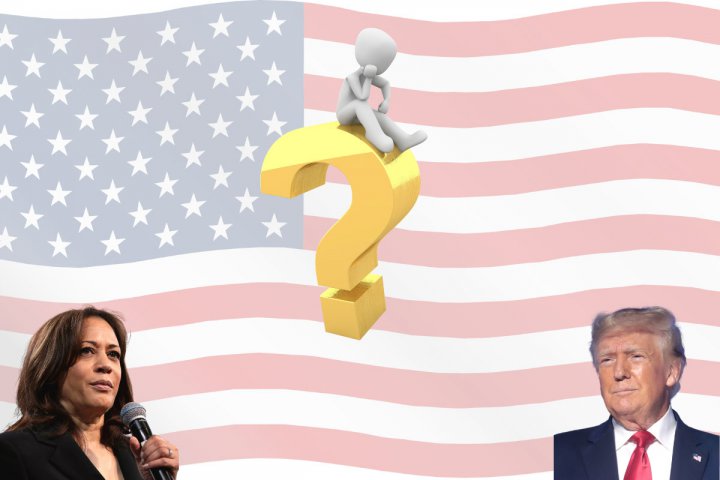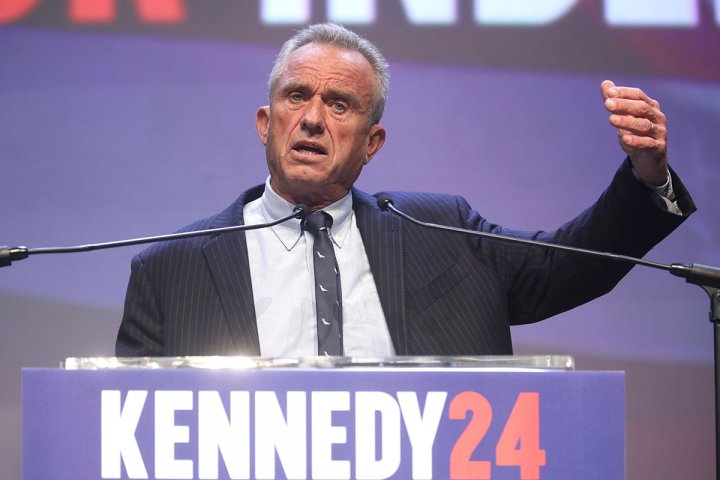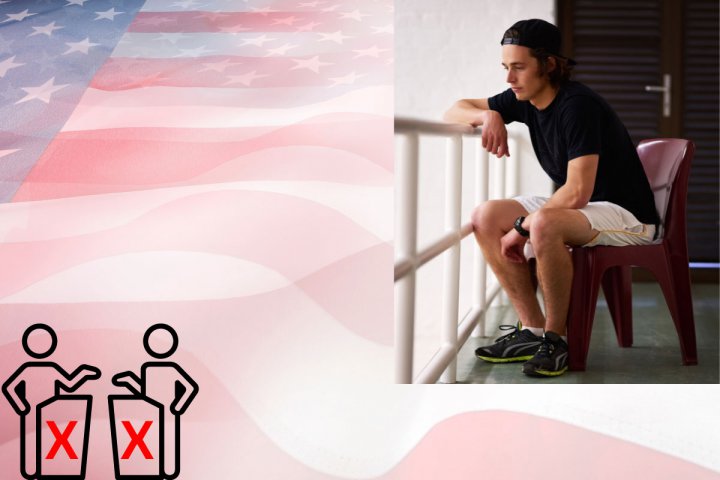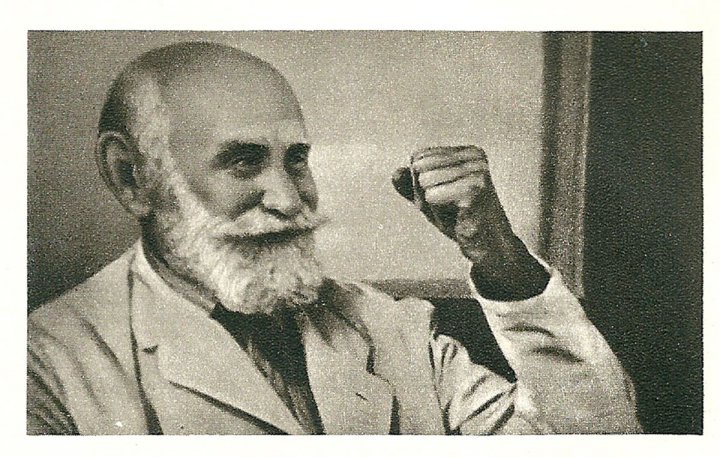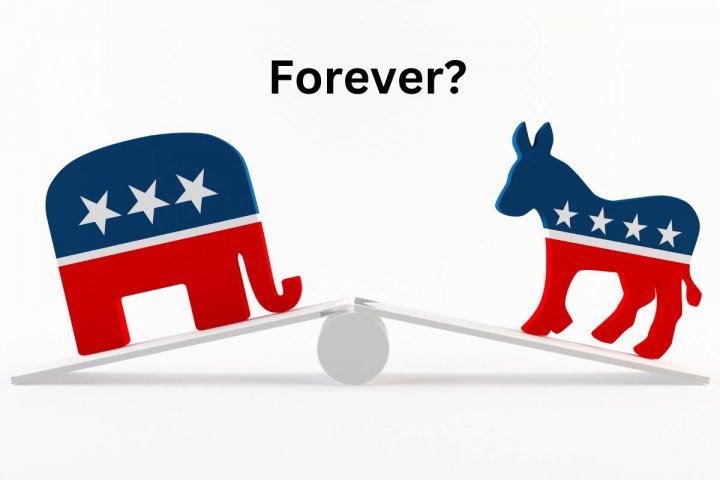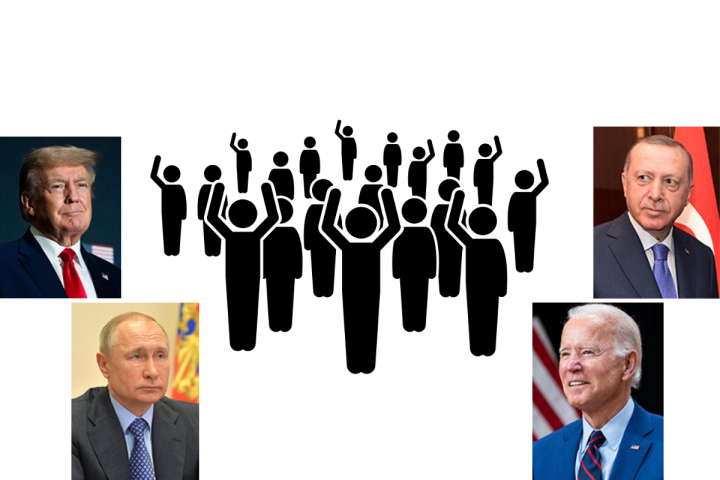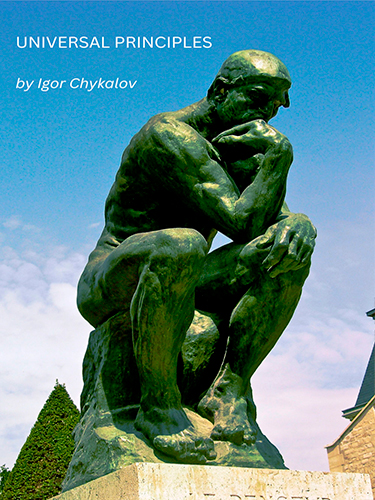4 Questions for Thyself Before Every Election
It seems the Americans have answered the first two main questions.
If they answer the question "who is to blame?" correctly,
they also will be able to answer the "what to do?" question.
If they answer the question "who is to blame?" correctly,
they also will be able to answer the "what to do?" question.
There is just over a week left until the US presidential election.
Both candidates are neck and neck and it looks like it will be that way until the election day. I recently read a great article by Jason Lange about the results of a Reuters/Ipsos opinion poll about upcoming election and I want to comment on it here.
The article is very good - short and clear, just facts and observations.
But first, a little of theory.
……….
4 Questions for thyself before every election.
The right question leads to the right answer.
Here are 4 right questions every citizen should ask thyself before every election:
1. Is my country developing, standing still, or degrading? Or more simply: am I living better than before, the same as before, or worse than before? Or even more simply: do I like how the country is doing?
2. If the answer to the first question is "I don't like it", then the next correct question is «what exactly do I dislike?» Here you need to summarize some information from your family’s routine life, not at the level of the country (there is too much of it). The family is a part of the country like a drop of water is a part of the sea, so if the family is doing bad, then the country is doing bad, too, and vice versa.
So, what exactly do you personally dislike about your country/state/county/community right now? Neighbors, food/water, taxes, natural disasters, crimes, courts, police, Democrats/Republicans, healthcare, drugs, guns, abortion, prices, immigrants, inflation, poor/rich, black/white, etc.?
3. Once you have determined what exactly you don't like, you can move on to the question "who is to blame?" and gather some information on that topic. It's a very important question, because you can't fight an opponent if you can't see him.
Unfortunately, you will have to do some self-education here to see the wider picture and form your own point of view. And it is imperative to discuss your conclusions with your family, friends and colleagues. And then you will see «who is to blame» for «what you dislike» and why that happened in such way.
4. Once you have determined "who is to blame" and "why it happened," you can begin to answer the "what to do" question.
This question is about a holistic understanding of the current state of affairs in the country and finding the goal for the future and the strategy to achieve it. From my point of view, no party in the US can offer this. So, the people must understand that and tell their leaders what they want to be done. There is simply no one else to push them.
Further on there will be other important, but secondary questions about the tactics of implementing the chosen strategy.
Americans have so far stopped on question #2 (“What exactly do I dislike?”) as shown by the results of a Reuters/Ipsos poll.
……….
What the Reuters/Ipsos poll showed.
Jason Lange has called his article «Harris holds 46%-43% lead over Trump amid voter gloom».
Here, the phrase «amid voter gloom» is very important.
The article goes on to explain: «… a glum electorate saying the country is on the wrong track.»
This is the most important understanding of the people and the answer to question #1. However, the opinion of the American people means little in the country, because they do not make decisions, and the elites of the US do not have this understanding yet. They are constantly (and especially now) busy with the political struggle and each party, being in power, is obliged to say that everything is fine in the country and it will be even better.
Candidate Harris and the Democrats are basically going to maintain the existing order, i.e. from their point of view everything is fine and the country is moving in the right direction.
Mr. Trump and supporting him Republicans believe that «the nation is in decline» (I agree with them here, although they say this just to win the election) and are actually going to destroy the existing order. In this sense, the Republicans are now playing to the opinion of the people, but this does not mean that when (and if) they come to power, their vision will not change.
Both parties are comfortably settled at the helm of the country, blaming each other for failures and occasionally switching places in the government, but not changing anything because they are doing quite well. They are simply leading the American people somewhere, pretending to know the direction.
I can point out the direction in which the country is moving: it is a fast (Mr. Trump as President) or slow (Mrs. Harris and a couple of subsequent presidents) disintegration of the US into groups of states which is not “bad”, by the way. It is even natural due to the ineffective management of the country by the irremovable Republican-Democratic elite.
The people somehow saw this and their correct understanding of «the country is on the wrong track» arose from here.
Only the people can stimulate their government to do something, but they have so far stopped at the question #2 in their understanding, and do not know the answer to the next question "who is to blame."
……….
Voters about the country's most important problems.
The Reuters-Ipsos poll found that «… Some 70% of registered voters in the poll said their cost of living was on the wrong track, while 60% said the economy was heading in the wrong direction and 65% said the same of immigration policy. Voters also said the economy and immigration, together with threats to democracy, were the country's most important problems. Asked which candidate had the better approach on the issues, Trump led on the economy - 46% to 38% - and on immigration by 48% to 35%.»
This is the answer to the second important question: "What exactly do I dislike?"
About two-thirds of Americans named wrong economic policy, the high cost of living, and the threat to democracy as America's main problems. The correct understanding of the two-thirds of the nation is already a good basis for some changes.
Let's look at these issues and how they should (but won’t) impact the US presidential election.
……….
Economic policies of the candidates.
I have written several times about the vicious inflationary economic model of the US that is quietly impoverishing the Americans, and the national debt which have completely fallen out of voters' sight.
So here I would like to refer to the opinion of the Professor of Economics at Harvard University and former IMF chief economist Kenneth Rogoff on the economic policies of both presidential candidates:
«Harris has already proposed raising taxes on the rich and corporations in order to generate $5 trillion in new revenue over the next decade. But she will struggle to implement her ambitious progressive plans without raising the deficit or breaking her promise not to raise taxes on anyone earning less than $400,000 per year. While Harris says she wants to “turn the page” on Donald Trump and the past decade of American politics, she has offered little clarity on what the next chapter might look like.»
«Harris’s economic plan includes several costly measures, such as restoring the Biden administration’s child tax credit and offering subsidies to first-time home buyers. Given Harris’s background as a progressive Democrat from California, one suspects her spending agenda will eventually go well beyond these initial proposals.»
«Trump has also proposed tax increases, albeit in the form of a universal 10% import tariff and a 60% tariff on Chinese goods. … But despite Trump’s claims to the contrary, his proposed tariffs – though technically levied on foreign companies – would ultimately lead to higher prices for US consumers, who would bear the brunt of the costs. Moreover, foreign countries will inevitably retaliate, further driving up the cost of imported goods.»
«Trump has promised tax cuts for everyone, vowing to make Social Security benefits tax-exempt not just for low-income retirees but also for the wealthy, who pay higher tax rates and thus stand to benefit the most. Needless to say, this approach is reckless.»
«Neither Trump nor Harris seems particularly interested in reducing the deficit.»
And one more very interesting quote from Mr. Rogoff regarding Mr. Trump's economic policies: «Notably, tariffs are common in developing countries with weak tax-collection systems.» I was interested to know this particularly in connection with Mr. Trump's favorite slogan «Make America great again».
Thus, according to Mr. Rogoff, both presidential candidates propose some uncoordinated economic measures instead of a comprehensive analysis of the economic situation in the country, the reasons for its occurrence, and will not be able to solve the main problem of the people (wrong economic policy and high cost of leaving).
Then there is no need to vote for both of them.
……….
Immigration policy of the candidates.
There is clearly a demand in American society to reduce illegal immigration and Democrats were eventually forced to tighten their immigration policy in June 2024. Apparently, if it had not been a presidential election year, they would have continued with it.
Mr. Trump promises a harsh crackdown on illegal immigration, with a border wall and mass deportations. Mrs. Harris suggests a balanced approach of border security with human rights considerations.
It is no surprise that Mr. Trump is ahead of Mrs. Harris in the poll here. This is simply because he offers the voters what they want, leaving out the morality behind (whether it is «good» or «bad»), while Mrs. Harris reminds to the Americans about the rights of some other people.
Morality is a set of moral rules that are not to be violated in a given place at a given time. However, circumstances change with time and many moral rules have to change, too. There is a time in the US now, when most Americans are against illegal immigration due to the large influx of immigrants, and different polls confirm that.
What matters here is not whether it is “good” or ”bad", but whether it is true or not.
……….
I have already written in some detail about the problem of immigration in the US. It's all about the law “The Immigration and Nationality Act” of 1952 which is still in effect today, although the situation in the world has changed much since then. Anyone can claim asylum right at the US border or after entering the country illegally.
If this law works against the will of the majority of the Americans, it must be changed or repealed. That's it. That's democracy in action.
And then there will be no need to finish building the “Trump wall” or ask the Mexican authorities not to let immigrants into the US. A national referendum (which, by the way, does not exist at federal level in the US) should be held or several large public opinion polls on the subject (which actually has already been done) just to be sure, and then the Congress changes the current law. For example, let potential immigrants apply for asylum from the territory of their countries and the flow of illegal immigrants will dry up.
Yes, there will be a lot of asylum court cases to finish and some work has to be done about the illegal immigrants who have already arrived, but that will be easier than forcing divided US lawmakers to change “The Immigration and Nationality Act.”
Thus, if the Americans are so tired of illegal immigrants, they should vote for Mr. Trump and ignore his personal qualities and the economic problems of the US. And in any case, the current presidential candidates, if elected, are unlikely to be able to force the other party to make a concession and change the 1952 asylum law, i.e., the future president will be spending taxpayer’s money to fight the consequence, not the cause.
……….
A threat to democracy.
Mr. Trump certainly poses a big threat to democracy because of his attempts to overturn the 2020 presidential election, often violent, antidemocratic and authoritarian statements, promises of vast expansion of presidential powers and the executive branch over every part of the federal government, his intention to have the Justice Department investigate and arrest his domestic political rivals, etc.
So, it's natural that Mrs. Harris is leading 42% to 35% here in the Reuters-Ipsos poll.
Then all lovers of democracy should vote for Mrs. Harris and ignore her economic and immigration policies. Plus, American women will get the bonus of being able to have abortions in their own country (which is correct as for me).
So, choose the most important problem for you from two, three or five issues and vote if you want.
The option "all you need in one package" doesn’t exist in the US.
……….
Deaf people shouldn’t argue about music.
Unfortunately, there is no party or independent candidate in the US who would have a comprehensive view of the situation in the country and express the opinion of the majority of the people on all major issues. This is why I call any election in the country "a choice without a choice."
Jason Lange states: «The new poll showed that voters have a dim view of the state of the economy and immigration - and they generally favor Trump's approach on these issues.»
There was a joke in my childhood: “You know, it turns out that Enrico Caruso had neither an ear for music nor a voice.” “And when did you hear him?” “My neighbor sang me one of his arias yesterday.”
In order for deaf people to start hearing music and discussing it, they first need to get rid of their deafness: to collect information from different sources, digest it, find an effective way to combat this deficiency and spend time on healing. There is usually no desire for all this, so it is easier to take on faith the words of a similar deaf person that his/her music is wonderful (or someone else's one is terrible), and vote for him/her in accordance with this "hearing".
……….
Answer to the question "Who is to blame?"
I have written quite a lot about the state of affairs in the US, but maybe too wordy, and thereby inadvertently concealed a simple truth from my few readers. It is that the American elite - the Democratic and Republican parties — who are guilty, together and separately, of the current mess in the country. It cannot be otherwise, since they probably represent 99% of all three branches of power in the US for many years. They are the ones who lead the country in the wrong direction which is now the main complaint from the majority of the American people.
Now the confrontation between Republicans and Democrats has escalated to the point of hatred and the people have also split into two camps. Therefore, in particular, the country as a whole has stalled and is degrading. For me, one of the main signs of the nation's degradation is the fact that Mr. Trump - a scoundrel, liar and cheater – is running for the highest office in the country, and about 70 million Americans support him.
……….
However, it would be wrong to put all the blame on the US elites alone. The government (in particular, the legislative and judicial branches) is directly elected by the people. Therefore, the American people are also to blame for keeping electing representatives of major two parties to power for many years despite the growing problems in the country.
The same will happen on November 5, 2024.
Democratic and Republican parties of the US are tearing the country apart and the people do not need to help them. This means that there is no need to vote for their representatives, but this can happen only after many Americans answer the question "who is to blame?"
So far, the majority of the US citizens do not have such understanding. But...
……….
Around a third of Americans already know the answer to question #3 (who is to blame).
Jason Lange writes: “Roughly one-third of registered voters are Democrats and one-third Republican, with the balance independents or those who favor third parties, according to an estimate by Pew Research.»
It turns out that about a third of registered voters understood the answer to question #3. Frankly, I think it's less, and mostly they are independent or "uncommitted" voters. Anyway, that's not a small number of people, although it’s not enough for the nation to move on and start thinking about the fourth question - "what to do?"
I have outlined my point of view on the fourth question in article «True democracy vs American aristocracy: protest voting.»
Comment
✚ Add comment
